Training Sites
UT Physicians Psychiatry Outpatient Clinic-BBSB
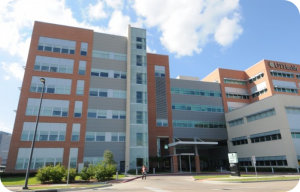 The UT Physicians Psychiatry Outpatient Clinic-BBSB, located inside the Behavioral and Biomedical Sciences Building (BBSB), is the primary outpatient facility of the McGovern Medical School Department of Psychiatry and Behavioral Sciences. It serves as the primary teaching site for the child and adolescent psychiatry fellows, and all seminars are held here. We offer comprehensive outpatient services to children, adolescents, and adults. All fellows will participate in the Continuity Clinic, where they will have the opportunity to follow patients throughout the two-year fellowship. Patients seen here exhibit a broad range of psychopathology, including mood disorders, disruptive behavior disorders, psychotic disorders, pervasive developmental disorders, learning disabilities, adjustment disorders, post-traumatic stress disorders, mental retardation, and anxiety disorders. Treatment includes pharmacotherapy, as well as individual, group, and family therapy. Faculty and teaching staff consists of four child and adolescent psychiatrists, three psychologists, and two clinical social workers. Educational activities are enhanced by extensive use of live video monitoring for real-time supervision, videotaping, and case conferences. Fellows also have the opportunity to participate in clinical research protocols.
The UT Physicians Psychiatry Outpatient Clinic-BBSB, located inside the Behavioral and Biomedical Sciences Building (BBSB), is the primary outpatient facility of the McGovern Medical School Department of Psychiatry and Behavioral Sciences. It serves as the primary teaching site for the child and adolescent psychiatry fellows, and all seminars are held here. We offer comprehensive outpatient services to children, adolescents, and adults. All fellows will participate in the Continuity Clinic, where they will have the opportunity to follow patients throughout the two-year fellowship. Patients seen here exhibit a broad range of psychopathology, including mood disorders, disruptive behavior disorders, psychotic disorders, pervasive developmental disorders, learning disabilities, adjustment disorders, post-traumatic stress disorders, mental retardation, and anxiety disorders. Treatment includes pharmacotherapy, as well as individual, group, and family therapy. Faculty and teaching staff consists of four child and adolescent psychiatrists, three psychologists, and two clinical social workers. Educational activities are enhanced by extensive use of live video monitoring for real-time supervision, videotaping, and case conferences. Fellows also have the opportunity to participate in clinical research protocols.
UTHealth Harris County Psychiatric Center (HCPC)
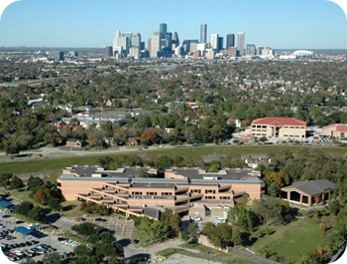 Acute Inpatient Child/Adolescent Unit
Acute Inpatient Child/Adolescent Unit
HCPC is a 250 bed publicly-funded psychiatric facility, located approximately 2 miles from the BBSB. The Division of Child and Adolescent Psychiatry operates a 20 bed Child and Adolescent acute inpatient service. All programs serve diagnostic, stabilization and treatment goals for patients requiring the structure and services of the various treatment settings. Each year there are over 500 admissions to the Child and Adolescent inpatient services at HCPC. Diagnoses among those admitted include mood disorders such as major depression and bipolar disorder, disruptive behavior disorders such as attention deficit hyperactivity disorder and conduct disorders, psychotic disorders such as schizophrenia, schizoaffective disorder and brief psychotic episodes, as well as developmental disorders including autism, pervasive developmental disorder, and mental retardation. Treatment interventions include individual, family, group, milieu and psychopharmacologic modalities. The inpatient unit includes three faculty attending child psychiatrists, nurses, a psychologist and a social worker/family therapist. As HCPC is also designed as a clinical research facility, the resident has opportunity to observe and participate in clinical investigation protocols.
Nexus Children’s Hospital
Nexus Children’s Hospital serves patients of all ages with brain injury, spinal cord injury, other medically complex injuries, serious illness, developmental delays, and co-occurring physical,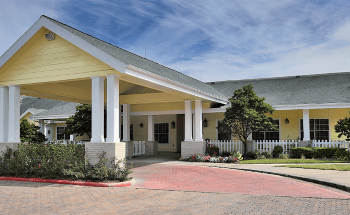 behavioral and mental health needs. This inpatient and outpatient pediatric specialty care in Houston is a bridge between hospital and home for pediatric medical care, rehabilitation, and behavioral health.
behavioral and mental health needs. This inpatient and outpatient pediatric specialty care in Houston is a bridge between hospital and home for pediatric medical care, rehabilitation, and behavioral health.
Children’s Memorial Hermann Hospital (MHH)
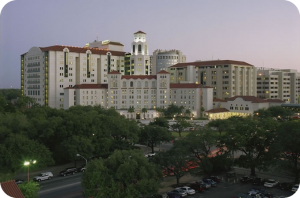 Children’s Memorial Hermann Hospital is a 310-bed quaternary care women and children’s hospital with medical, surgical and pediatric beds as well as one of the city’s two Level I trauma units. It also operates a level IV NICU and a Level IV comprehensive Epilepsy center, as well as the Emergency Department. This private, not-for-profit hospital is the primary teaching site for UTHealth McGovern Medical School. The Division of Child and Adolescent Psychiatry maintains a strong consultation/liaison presence on the Pediatric Service, with a faculty member assigned to oversee consultation activities and to serve as liaison to the Department of Pediatrics. Psychiatric diagnoses for patients seen include adjustment disorders, conversion disorders, somatization disorder, factitious disorder by proxy, anorexia, PTSD, conduct and oppositional defiant disorders, delirium, substance abuse and depression and anxiety secondary to medical illness. Patients are seen for emergencies including suicide attempts, drug overdose, acute mental status change and acute trauma such as paralysis, amputation or death of a family member. All cases are closely supervised on-site by the attending child psychiatrist. Fellows will also rotate through the Weight Management program and the Adolescent Medicine Clinic.
Children’s Memorial Hermann Hospital is a 310-bed quaternary care women and children’s hospital with medical, surgical and pediatric beds as well as one of the city’s two Level I trauma units. It also operates a level IV NICU and a Level IV comprehensive Epilepsy center, as well as the Emergency Department. This private, not-for-profit hospital is the primary teaching site for UTHealth McGovern Medical School. The Division of Child and Adolescent Psychiatry maintains a strong consultation/liaison presence on the Pediatric Service, with a faculty member assigned to oversee consultation activities and to serve as liaison to the Department of Pediatrics. Psychiatric diagnoses for patients seen include adjustment disorders, conversion disorders, somatization disorder, factitious disorder by proxy, anorexia, PTSD, conduct and oppositional defiant disorders, delirium, substance abuse and depression and anxiety secondary to medical illness. Patients are seen for emergencies including suicide attempts, drug overdose, acute mental status change and acute trauma such as paralysis, amputation or death of a family member. All cases are closely supervised on-site by the attending child psychiatrist. Fellows will also rotate through the Weight Management program and the Adolescent Medicine Clinic.
The University of Texas M.D. Anderson Cancer Center
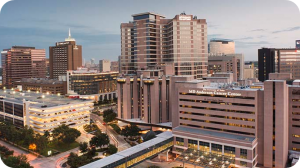 First-year fellows have a required rotation during the first year at the University of Texas M.D. Anderson Cancer Center. M.D. Anderson is a comprehensive cancer center with over 1500 outpatient visits per day and considered a world leader in research and treatment of all types of cancer. It is located in the Texas Medical Center, one mile from BBSB. The psychiatry section has both inpatient and outpatient consultation services for children and adults and serves patients from all over the world. Child fellows see patients often to help them cope with a cancer diagnosis, but also to address common psychiatric comorbidity including mood disorders, adjustment disorders, post-traumatic stress disorders, psychoses, organic mental disorders and anxiety disorders.
First-year fellows have a required rotation during the first year at the University of Texas M.D. Anderson Cancer Center. M.D. Anderson is a comprehensive cancer center with over 1500 outpatient visits per day and considered a world leader in research and treatment of all types of cancer. It is located in the Texas Medical Center, one mile from BBSB. The psychiatry section has both inpatient and outpatient consultation services for children and adults and serves patients from all over the world. Child fellows see patients often to help them cope with a cancer diagnosis, but also to address common psychiatric comorbidity including mood disorders, adjustment disorders, post-traumatic stress disorders, psychoses, organic mental disorders and anxiety disorders.
Children’s Assessment Center (CAC)
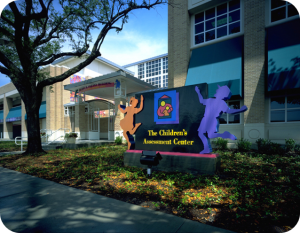 The Children’s Assessment Center is a non-profit social purpose enterprise founded in 1991 to serve the needs of sexually abused children across Harris County. It is a collaborative public/private partnership of 15 agencies bringing together social workers, physicians, attorneys and law enforcement professionals in one central location to provide a continuum of critical, coordinated services. The Center’s mission is to provide a professional, compassionate and coordinated approach to the treatment of sexually abused children and their families and to serve as an advocate for all children in our community. Mental health services are provided through the Therapy and Psychological Services Department, which includes Ph.D. level psychologists, Masters level therapists, additional contract therapists, and a UTHealth Child and Adolescent Psychiatrist. Therapy services include play, art, music and dance movement therapy in individual and group formats. Parents of abused children are commonly seen as well. Fellows will see patients for initial evaluation and follow-up medication visits. Individual and group psychotherapy is provided by the therapists, and the residents are expected to liaison with the therapists, as well as with the other agencies involved with these children. There are elective opportunities available to observe forensic assessments and court testimony, group psychotherapy, and other therapies specific to the needs of sexually abused children.
The Children’s Assessment Center is a non-profit social purpose enterprise founded in 1991 to serve the needs of sexually abused children across Harris County. It is a collaborative public/private partnership of 15 agencies bringing together social workers, physicians, attorneys and law enforcement professionals in one central location to provide a continuum of critical, coordinated services. The Center’s mission is to provide a professional, compassionate and coordinated approach to the treatment of sexually abused children and their families and to serve as an advocate for all children in our community. Mental health services are provided through the Therapy and Psychological Services Department, which includes Ph.D. level psychologists, Masters level therapists, additional contract therapists, and a UTHealth Child and Adolescent Psychiatrist. Therapy services include play, art, music and dance movement therapy in individual and group formats. Parents of abused children are commonly seen as well. Fellows will see patients for initial evaluation and follow-up medication visits. Individual and group psychotherapy is provided by the therapists, and the residents are expected to liaison with the therapists, as well as with the other agencies involved with these children. There are elective opportunities available to observe forensic assessments and court testimony, group psychotherapy, and other therapies specific to the needs of sexually abused children.
Harris Center for Mental Health and IDD (Community Psychiatry)
Second-year residents rotate through two Community Psychiatry clinics over a two month period. The Harris Center Child and Adolescent Services provide mental health evaluation and treatment to children from birth to 17 years with serious emotional disturbances, behavioral problems, and those with the dual Diagnosis of emotional disturbance and developmental disabilities. Fellows will rotate at a school-based clinic that provides outpatient care in a middle school setting. Some of the services provided at the Harris Center include: intake and assessment, psychiatric services, psychotherapy and skills training, and case management.
UT Physicians Pediatric Neurology at Texas Medical Center
Second year residents have a required rotation in the UT Physicians Pediatric Neurology Clinic. The clinic has approximately 3000 outpatient visits per year, with a full range of neurologic diagnoses including those of infectious etiology, seizure disorders, Tourette Disorder, cerebral palsy, epilepsy, neuromuscular disorders, developmental disorders and mental retardation, etc. Teaching staff includes the Division Director and four additional pediatric neurologists, all full-time and all board-certified. Residents will be responsible for new evaluations as well as follow-up visit of patients with neurologic disorders.
Behavioral Health Prevention & Recovery Center (PaRC) 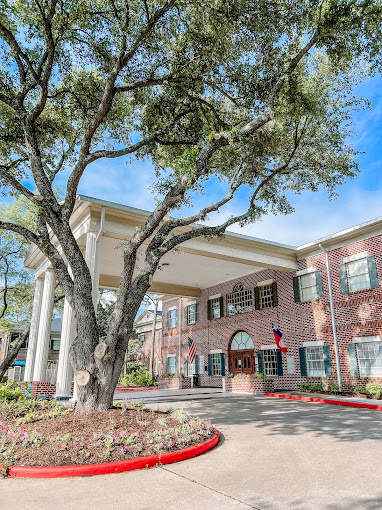
Understanding addiction is vital to overcoming it, therefore when choosing a final treatment facility, it is important that your choice invests in the resources necessary to educate each patient in a holistic approach. At PaRC, we know that addiction is a disease of the mind, body and spirit so we take every possible approach to improve our patients for every one of these areas.An important element to recovery at the PaRC is to keep patients busy at all times. They must be growing, learning and exploring, as well as enjoying their new clean sober life. To accomplish this, we provide a variety of activities, services and amenities in Houston to stimulate the senses, encourage quality peer interaction and, of course, open up the doors to a new healthy way to live.
UT Physicians Clinics with Pediatrics
Along with helping people adjust to challenges in their lives, we treat major mental illness such as:
- Major Depressive Disorder
- Bipolar Disorder
- Anxiety Disorder
- Schizoaffective Disorder
- Schizophrenia
Additionally, we provide psychological testing to infants, children, adolescents, and adults who are experiencing difficulties related to:
- Autism Spectrum Disorders
- Attention Deficit Hyperactivity Disorder
- Intellectual and Developmental Disabilities
- Language and Learning Disorders
- Behavioral Disorders
- Emotional Disorders


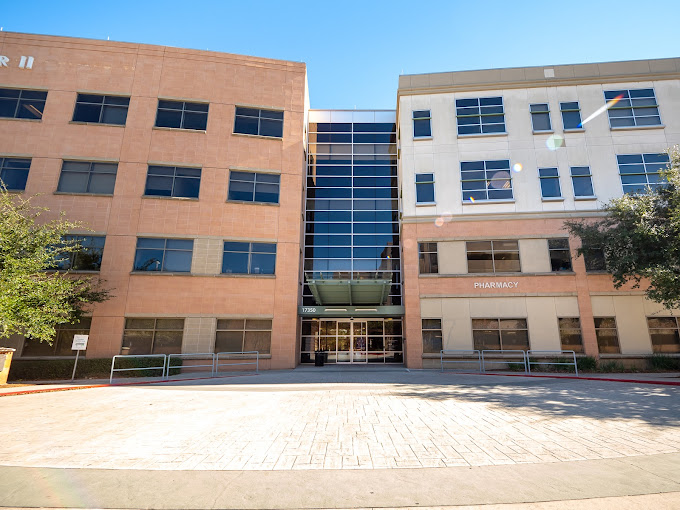 Eating Recovery Center – The Woodlands
Eating Recovery Center – The Woodlands